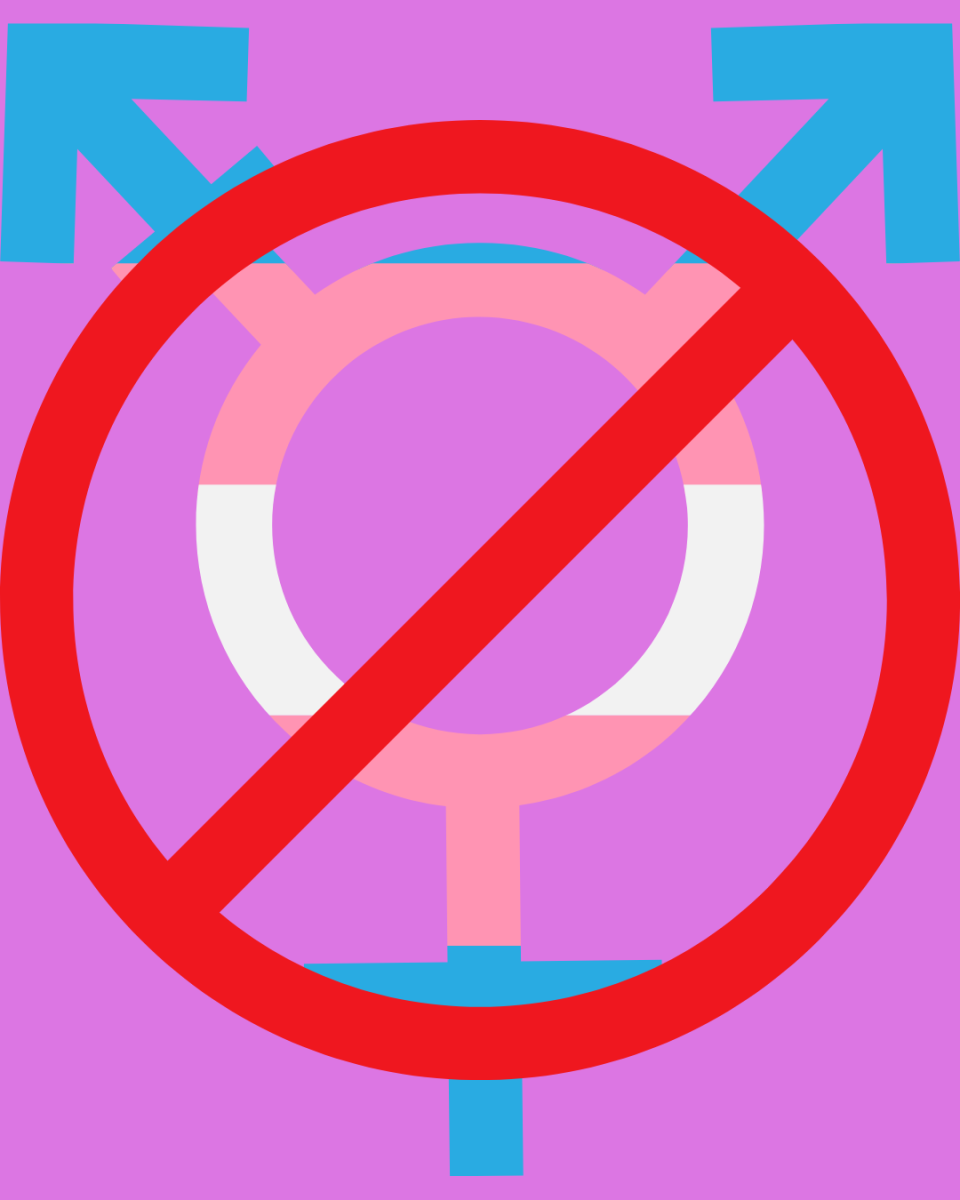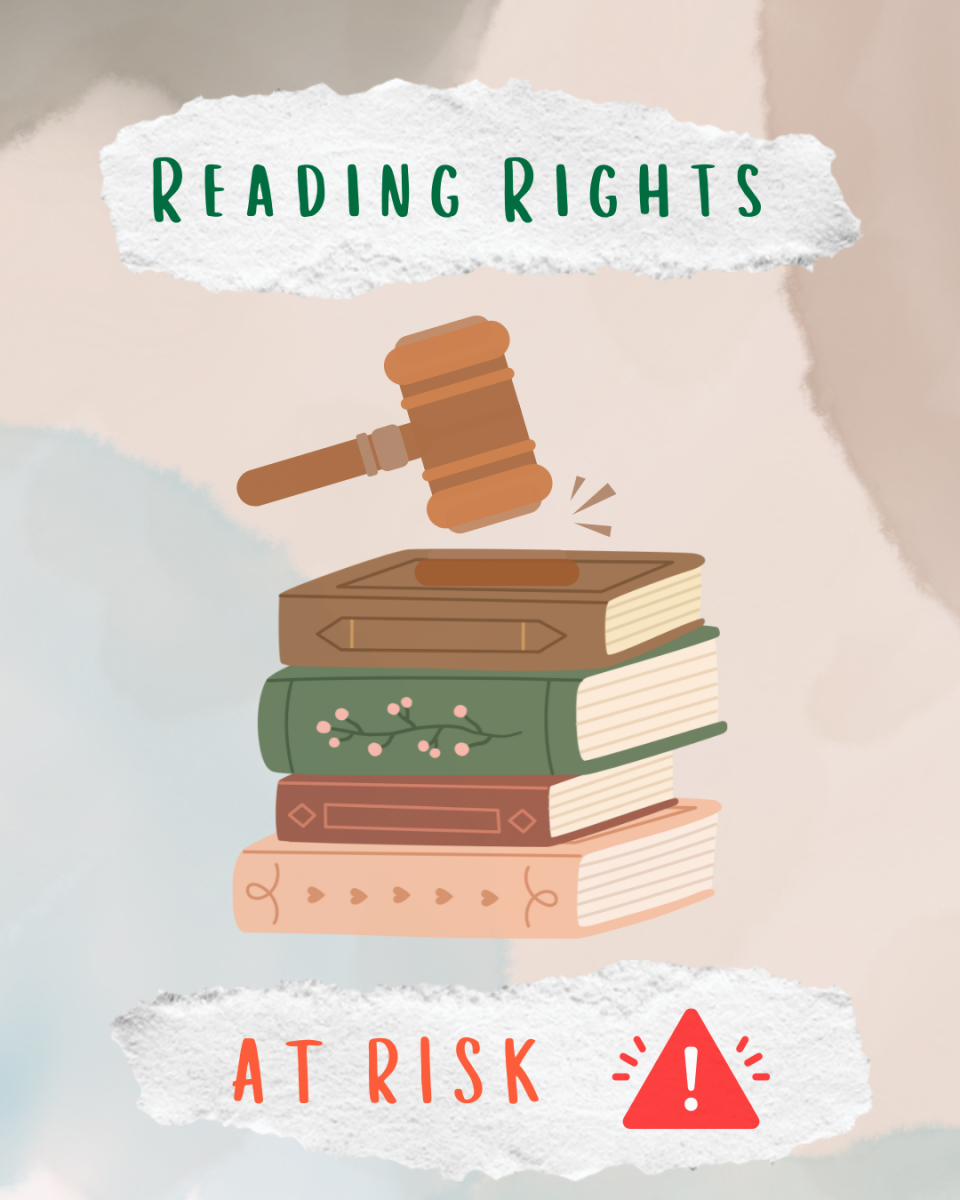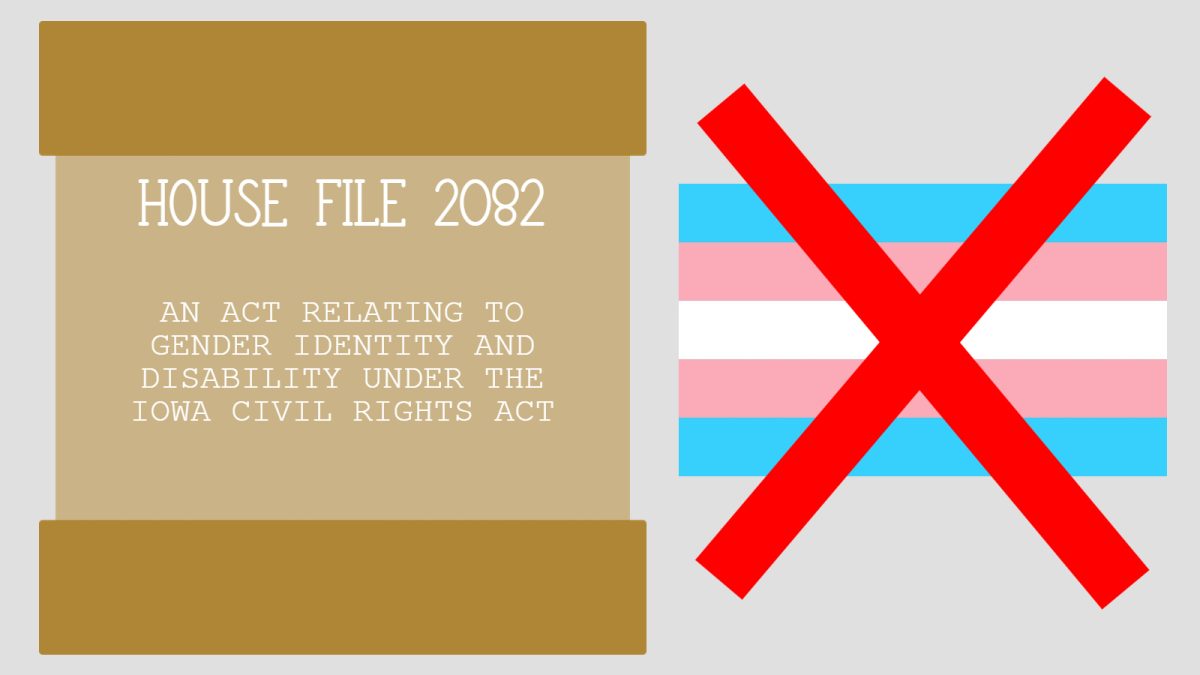UPDATE: On Jan. 31, members of the Iowa House rejected House File 2082. (02/01/2024)
On Wednesday, Jan. 31, 2024, Iowa legislators will hold a meeting over the proposed House File 2082, a bill that will remove gender identity from the Iowa Civil Rights Act and list gender dysphoria as a disability.
“HF2082 removes gender identity as a class from the Iowa Civil Rights Act, stripping transgender Iowans of critical protections in the areas of housing, employment, education, public accommodations, and credit practices,” Max Mowitz, program director at OneIowa, an organization that advocates for LGBTQ rights in the state said.
This means that Iowans could be denied home loans, employment, and other rights because of their gender identity, Mowitz said.
The bill was introduced by Iowa House Republican for District 87 Jeff Shipley.
“One of the key questions that needs clarification – ‘how does one establish themselves as a member of this protected class?’ These are extremely powerful laws, but their application is poorly understood,” Shipley said.
There is some legislation that protects transgender individuals should the bill be passed.
“There are limited employment protections offered by the Bostock v Clayton County ruling, but that’s it,” Iowa House Democrat Molly Buck for District 41 said, “There are no statutory protections at the federal level. If transgender people lose them at the state level, they’re gone.”
The Iowa Civil Rights Act was originally introduced in 2007 to prohibit discrimination based on age, race, creed, color, sex, sexual orientation, gender identity, national origin, religion, or disability. However, Iowa House Republicans are looking to remove gender identity from that list.
“When I served in 2007, we included LGBTQ+ in the Iowa Civil Rights Act. I am really disappointed Republicans supporting this legislation are now trying to reverse that progress and are now attempting to promote discrimination in housing and employment. It’s a huge step backward for Iowans,” Iowa House Democrat for District 80 Art Staed said.
Some students at Ankeny seem worried about the consequences of House File 2082.
“If this bill is passed, it removes any rights that I would have, and I would have to go through a lot more effort to get the rights that I should just be able to have,” Phoenix Dautremont, a nonbinary student and junior at Ankeny High School, said.
The bill lists gender dysphoria as a disability, as well as any condition related to a gender identity disorder.
“Gender dysphoria is not a disability,” Dautremont said. “It does not affect someone’s ability to function. It just affects their perceived self-worth. You wouldn’t count having low self-esteem as a disability.”
When asked to elaborate on gender identity disorder, Shipley referred to this 2007 article that explains the psychology between the two sub-types of “MtF [male to female] transsexuals.” The article describes each type as experiencing “erotic arousal at the idea of becoming a woman.”
Gender dysphoria is defined as “the feeling of discomfort or distress that might occur in people whose gender identity differs from their sex assigned at birth or sex-related physical characteristics,” reports the Mayo Clinic.
Shipley’s cited article seems to refute this idea stating that “a common understanding of male-to-female transsexualism is that all MtF transsexuals are, essentially, women trapped in men’s bodies… The standard, feminine essence narrative, and the associated brain-sex theory, are incorrect, in the sense that they do not represent reality, even if they do correspond with many transsexual individuals’ beliefs and identities.”
Shipley states that this is what is happening in most cases.
“Gender dysphoria is not a disability. It is a diagnosis in the DSM 5, which clearly states that it is not a disability,” Mowitz said. “Because the language of the bill is very broad, it also introduces legal issues related to disability as a protected class and what that would entail.”
This might mean that using preferred pronouns will become more difficult in school.
“I think it’ll be specifically a lot harder for people to ask to have teachers respect their pronouns without teachers having to worry about their jobs,” Dautremont said. “It’ll make it so that [teachers] can’t use a student’s preferred pronouns unless they have a diagnosis.”
Reportedly many Democrats will be attending the hearing today, Wednesday, Jan. 31 in opposition to the bill.
“This bill is awful and there is no reason for it other than to harm Iowa’s most vulnerable groups,” Buck said. “I am in strong opposition of this bill and will continue to stand up for the LGBTQ+ community.”
Gender-diverse students are asking legislators to vote against this bill.
“I want [legislators] to think about how this will affect everybody. It’s going to actively harm a lot of people, and it doesn’t protect anyone,” Dautremont said. “It’s actively making it harder for people to get rights, and it’s unfair. I want them to vote against it because it would make life harder for many individuals.”
For some Iowans, this is only the first step back.
“I want other Iowans and lawmakers to remember that we are better than this. Iowan has historically been ahead of the curve on protections for marginalized folks- this bill would reverse that progress in a way that is unabashedly hateful,” Mowitz said. “Every Iowan deserves safety, protection, and belonging.”
The meeting will be held at noon at the Iowa Capitol. For some Iowans, this bill may change their environment.































![Bing talking about the plan for the day with her students in one of her AP Biology courses. “If I wasn't passionate about working with students, I don't think [I’d stay in teaching], but no, it's absolutely the students that I have that [make it worth it,” Bing stated. Photo taken by Sylvia Bartlett.](https://ahstalonnews.com/wp-content/uploads/2025/04/bing.jpg)












